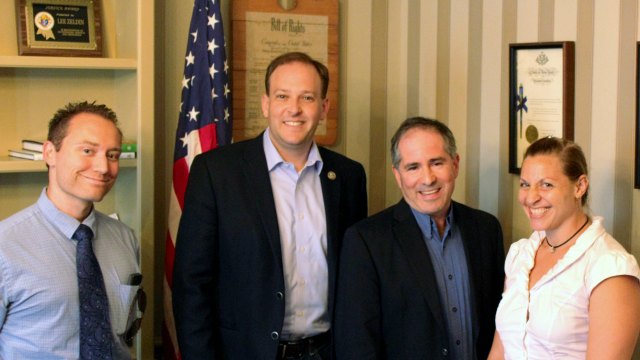 From left to right: Robert Rainer (operations coordinator at Brookhaven National Laboratory), Rep. Lee Zeldin, Howard Sirotkin (a neuroscientist at the State University of New York at Stony Brook), Miriam Fein
From left to right: Robert Rainer (operations coordinator at Brookhaven National Laboratory), Rep. Lee Zeldin, Howard Sirotkin (a neuroscientist at the State University of New York at Stony Brook), Miriam Fein
Science is in jeopardy in America. You don’t have to look much further than the words and actions of our current Commander-in-Chief, Donald Trump. Mr. Trump’s priorities were bared with his proposed 2018 budget, which slashes funding to multiple scientific and health institutions, including the National Institutes of Health (NIH), the Environmental Protection Agency (EPA), the Centers for Disease Control and Prevention (CDC), the Food and Drug Administration (FDA), the National Science Foundation (NSF), the National Aeronautics and Space Administration (NASA), the United States Geological Survey, and the National Oceanic and Atmospheric Administration (NOAA)—to name a few.
Cuts to NOAA would drastically impair the agency’s climate research. NASA cuts would end a research program necessary for establishing effective carbon monitoring in the U.S. and abroad. ...



















